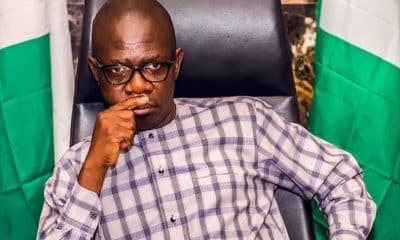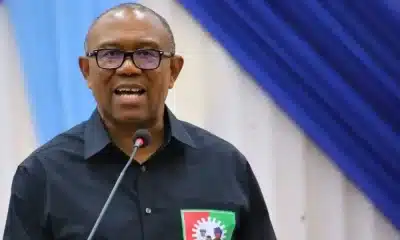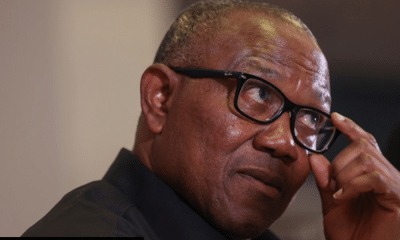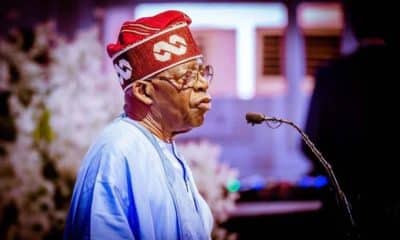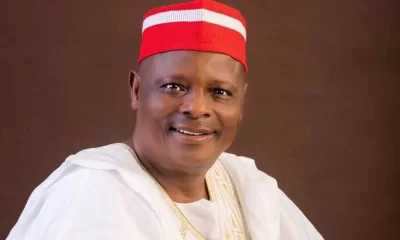Editorial
2023 Election: Political Campaigns Must Be Issue-Based
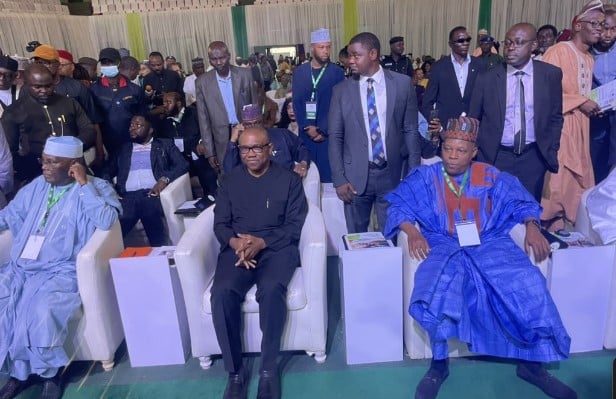
On September 28, 2022, INEC blew the whistle for the flag off of campaigns for the 2023 electoral cycle. This is in accordance with Section 94(1) of the Electoral Act 2022 which stipulates that campaign in public by all political parties “commences 150 days before polling day and ends 24 hours prior to that day”. With this development, Nigerians’ moment in the sun is here, particularly as the competition this time is the stiffest with the leeway for manipulation very narrow. We, therefore, make haste to urge the citizens not just to enjoy the breeze but use the window to have a proper look in and let what they see swing their ballot. This will be the longest campaign season that will be preceding the general election in Nigeria. These 150 days for the campaign must be used to set the political elite’s feet to the fire. They mustn’t be allowed to get away with the sweet nothings they usually say on soapboxes.
The electioneering period is the beauty of democracy as it brings the supremacy of the electorate to the fore. It is projected that 95 million voters would participate in the election to hold next February. The people now have more time to be courted by those seeking to win the 2023 general election. It would be recalled that in the 2019 polls, the Independent National Electoral Commission (INEC) lifted its ban on political campaigns on November 18, 2018. For the penultimate election, the then Electoral Act provided for the lifting of the ban on political campaigns 90 days before the commencement of the elections which brought it to December 5, 2014. Now, the Nigerian electorate has a whole 150 days to play the beautiful bride.
While final lists for candidates at the state level are still being expected, the electoral umpire has disclosed that 18 political parties have fielded candidates and running mates for the Presidential election. For legislative elections, 1,101 candidates are vying for 109 Senatorial seats while 3,122 candidates are in the race to represent the 360 Federal Constituencies. These candidates and their parties as well as their agents will be trying to outdo one another just to make sure that the people get to trust them with their votes at the polls. If previous experience is anything to go by, the urge for advantage over their opponents sees politicians and their agents to throw caution to the wind in do-or-die politics.
It is for this reason that two days before the lifting of the embargo on political campaigns, INEC Chairman, Prof Mahmood Yakubu, read the rules of engagement to political parties for the campaigns in accordance with the 2022 Electoral Act, warning that “abusive, intemperate, slanderous or base language or innuendoes designed or likely to provoke violent reactions or emotions must not be employed or used in political campaigns”. He also advised politicians and their parties to study the provisions of the Constitution, the Electoral Act, the Police Act, and the Public Order Act for the proper and peaceful conduct of political campaigns, rallies, and processions.
The National Peace Commission has also stepped in by getting the presidential candidates and their party chairmen to sign a peace accord on Thursday where President Muhammadu Buhari cautioned against incitements and called on the presidential candidates to commit to running issue-based campaigns. According to him, “the rise of fake news and misinformation continue to pose a significant threat to the pattern of democracy in Nigeria. It has shifted focus away from issue-based campaigns to amplifying the potential for personal attacks, insults, and incitement. It has also significantly diminished the civility and decency in public discourse and debate”.
Naija News expects the political gladiators to heed this call by the President. The peace accord they signed should count for something and its spirit and letter should cascade to their spokespersons, aides, and online warriors. Issues at the very heart of national development and progress provide enough on the plate for the politicians to chew without any other space for stoking ethnic or religious hate, personal insults, and the play-up of matters that inflame passions. For instance, why will any same candidate or their supporter overlook the pervasive security crisis, the 33 per cent unemployment rate, 40 per cent poverty rate, fuel subsidy, heightened inflation, or the devaluation of the Naira to campaign based on insults and the mundane? We can’t agree more with former President Goodluck Jonathan when he stated that the politics of bitterness and ethnoreligious division portends great danger to the unity of Nigeria as well as the growth and the sustenance of the country’s democracy.
While we frown at the mindless politics of pulling down political opponents, this newspaper equally rejects the recourse to deception and propaganda by politicians to woo voters. Nigerians must have learned their lessons from believing captivating promises that those making them have no intention of keeping once they get into office. When they make bogus promises, the people must ask the politicians to explain how they intend to realize them. It is for this reason that Naija News calls for debates to be an integral part of this campaign season. Apart from one-on-one media interviews, there should be town hall meetings for the people to get to know the candidates better and ask all the relevant questions. It is a source of worry that the candidates and their parties are yet to put out their manifestoes. These documents should already be all over the place with the people interrogating and probing what the candidates are coming to do in office.
We consider it a good thing that the new Electoral Act has given Nigerians a campaign season that is a marathon rather than a sprint. It means the people have enough time to engage with those coming to superintend over their affairs as is the practice in other climes. The fairly long time for political campaigns exposes those candidates that are infirm, incapacitated, or vacuous. The people must be reminded that this is the period when politicians will suddenly become nice and relatable. Those of them who are perpetually out of their constituencies will begin frequenting their constituency offices. They will stop winding up their tinted SUV windows and ride on open-roof vehicles smiling or waving at the people as if that is how it’s going to be when they get elected.
Nigeria has gone through a lot and the 2023 election provides an opportunity to pull the country from the precipice. The stakes are so high that former president Olusegun Obasanjo recently warned that “in the next election if we do not watch it, it may make or break Nigeria”. Allowing the country to be made rather than broken by the polls starts with how the citizens maximize the campaign season. Nigerians should see the campaign season as an interview session where they get to choose the most capable among the contestants. This is one role that is not exclusive to registered voters. This campaign season provides an opportunity for those who couldn’t register to vote or get their PVCs. They can still carry out their civic duty by sensitizing the electorate in their circle on the need to vote wisely. They should extend this sensitization to rural dwellers, encouraging them to look beyond sentiments and financial inducements and elect candidates who can deliver good governance. However, every stakeholder in the 2023 general election must subject their campaigns to issues and nothing else. The electorate are wiser now and expect nothing less.

